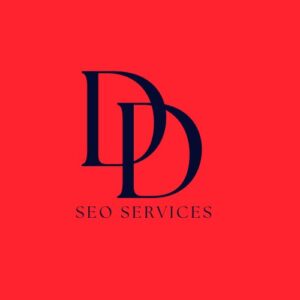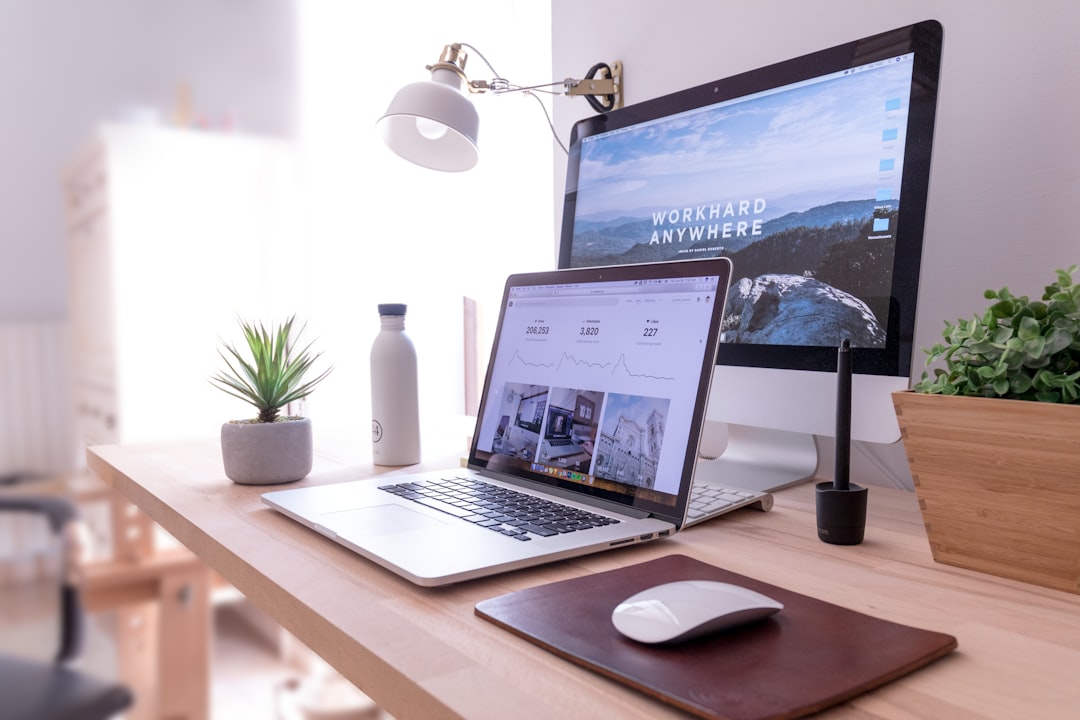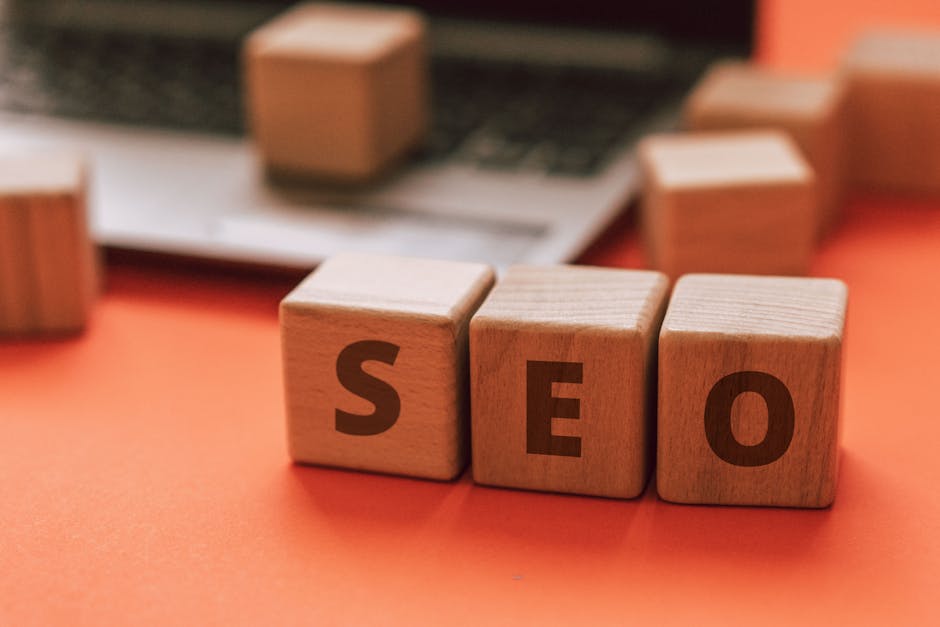Importance of Web Design for Local Businesses
Web design for local businesses is crucial for success in today’s digital world. Your website serves as a digital storefront, often creating the first impression potential customers have of your brand. Here’s why it’s important:
1. First Impressions Matter: Your website must be visually appealing and user-friendly.
2. Competitive Edge: A well-designed site helps you stand out from local competitors.
3. SEO Benefits: Good web design includes SEO practices that improve your search engine ranking.
4. Customer Engagement: Engaging content and easy navigation keep visitors on your site longer, increasing the chances of conversion.
As the founder of D&D SEO Services, I’m Danielle Birriel, and I’ve spent over a decade helping local businesses improve their online presence through effective web design and SEO strategies. With my expertise, I can help transform your online storefront into a lead-generating machine.
Why Every Local Business Needs a Website
Credibility
A website is like a digital storefront. It gives your business credibility. According to a Forbes article, a professionally designed website creates a strong first impression. Imagine walking into a well-organized store versus a cluttered one. Which one would you trust more? The same goes for websites. A clean, easy-to-steer site boosts your credibility and trustworthiness.
Promotion
A website is a powerful promotional tool. It’s available 24/7, unlike a physical store that has closing hours. You can showcase your products or services, share customer testimonials, and even run promotions. According to BigCommerce, businesses with ten or more reviews see a 15%-20% increase in traffic. This means more eyes on your promotions and, ultimately, more sales.
Competition
Having a website levels the playing field. Even if you’re a small business, a well-designed site can make you look as professional as bigger competitors. For instance, Shopify keeps its home page simple, asking visitors to enter their email for a free trial. This simplicity helps them compete effectively. By avoiding clutter and making decisions easy for visitors, you can stand out in a crowded market.
Customer Engagement
A website is more than just a digital business card. It’s an engagement hub. You can use it to interact with customers through blogs, FAQs, and even chat features. According to Accenture, nearly 60% of consumers want real-time offers and promos. This means your website can be a place where customers find the information they need and feel connected to your business.
Real-World Example:
Take Salesforce. Their customer success stories page features testimonials from top companies like AGI and Loopio. These bite-sized quotes show how their solutions have helped other businesses, making visitors more likely to engage and convert.
In summary, a well-designed website is essential for any local business looking to build credibility, promote their offerings, compete effectively, and engage with customers.
Next, let’s explore the Key Features of Effective Small Business Websites to ensure your site stands out.
Key Features of Effective Small Business Websites
When it comes to web design for local businesses, certain features can make or break your online presence. Let’s dive into the key elements that can turn your website into a powerful tool for growth.
User-Friendly Design
A website should be easy to steer. Simple menus, clear calls to action, and intuitive layouts help visitors find what they need quickly. If a visitor gets frustrated, they’ll leave.
Fact: According to Forbes, a well-designed website can significantly boost conversion rates. For example, Groove doubled its conversion rate from 2.3% to 4.7% by improving its landing page design.
Mobile Responsiveness
With 88% of people searching for local businesses on mobile devices, having a mobile-friendly site is non-negotiable. A responsive design ensures your site looks and works great on all devices, improving user experience and reducing bounce rates.
Fact: Websites that are not mobile-friendly can lose up to 50% of their potential traffic. Source.
SEO Optimization
SEO, or Search Engine Optimization, is crucial for local businesses. This includes:
- Keyword Optimization: Use relevant keywords in your content, titles, and meta descriptions.
- Local SEO: Create dedicated landing pages for each location you serve. Include local keywords and specific information about the services you offer in each area.
Tip: Structured data markup helps search engines understand your content better, which can improve your visibility in search results.
Engaging Content
Your website should have compelling content that keeps visitors engaged. This includes:
- High-Quality Images: Use images that are relevant and high-resolution.
- Informative Text: Provide valuable information that answers your visitors’ questions.
- Multimedia: Incorporate videos, podcasts, and other forms of content to keep your audience engaged.
Example: Patagonia’s homepage uses contrasting text and background colors to make it easy to read. They also offer video previews with captions, making their content accessible to a broader audience. Source.
Security
Security is a top priority for any website. Ensure your site is secure by:
- Using HTTPS: Encrypt data to protect your visitors’ information.
- Regular Updates: Keep your website and plugins updated to avoid vulnerabilities.
- Strong Passwords: Use complex passwords and change them regularly.
Fact: Websites that are not secure can lose customer trust and face penalties from search engines.
By focusing on these key features, you can create an effective and engaging website that meets the needs of your local business. Next, we’ll explore the Top Web Design Companies for Small Businesses to help you find the right partner for your web design needs.
Top Web Design Companies for Small Businesses
When it comes to web design for local businesses, finding the right company can make all the difference. Let’s dive into some key factors to consider: affordable options, custom packages, and customer service.
Affordable Options
Budget is often a major concern for small businesses. Fortunately, D&D SEO Services provides high-quality web design services without breaking the bank. We offer user-friendly tools and templates at a low cost, ensuring you get the most value for your money.
Tip: Outsourcing your web design can be more cost-effective than hiring an in-house designer, as you only pay for the specific services you need.
Custom Packages
Every business is unique, and so are its web design needs. D&D SEO Services offers customizable packages that include everything from basic web design to advanced SEO optimization and content management.
Story: One local bakery saw a 60% increase in online orders after switching to a custom-designed website that showcased their products more effectively.
Customer Service
Great customer service is essential for a smooth web design process. D&D SEO Services prides itself on offering excellent customer support, ensuring that any issues are resolved quickly and efficiently.
Quote: “When it comes to affordable web design for small businesses, it’s important to remember that you’re paying for your designer’s skill and years of experience above all else.” – D&D SEO Services
DIY vs. Professional Web Design: Pros and Cons
When deciding between DIY and professional web design for your local business, there are several factors to consider. Let’s break down the pros and cons to help you make an informed choice.
Cost Comparison
DIY Web Design:
– Pros: The most obvious benefit is cost savings. Using website builders can be as low as $99/month. You avoid the high upfront costs of hiring a professional.
– Cons: While cheap upfront, DIY often incurs hidden costs. You might need to purchase plugins or additional features, and any mistakes can be costly to fix.
Professional Web Design:
– Pros: Hiring a professional like D&D SEO Services can be a significant investment, but you get a polished, custom site designed to meet your specific needs.
– Cons: The initial cost can be prohibitive for small businesses with tight budgets. But remember, you’re paying for expertise and long-term value.
Time Investment
DIY Web Design:
– Pros: You have complete control over the timeline. This can be beneficial if you need to launch quickly.
– Cons: Building a website from scratch can be very time-consuming, especially if you’re not tech-savvy. Time spent on web design is time taken away from running your business.
Professional Web Design:
– Pros: Professionals like those at D&D SEO Services handle everything, freeing up your time. They can often complete projects faster due to their experience and resources.
– Cons: You may need to wait for availability, especially with popular agencies. Clear communication is crucial to avoid delays.
Skill Requirements
DIY Web Design:
– Pros: Modern website builders are user-friendly and don’t require coding skills. They offer templates and drag-and-drop features.
– Cons: Even with these tools, there’s a learning curve. You might struggle with advanced features or customizations, leading to a less professional look.
Professional Web Design:
– Pros: Professionals bring a diverse skill set, including design, coding, and SEO. They stay updated with the latest trends and technologies.
– Cons: You rely on their expertise, which means less control over the creative process. Miscommunication can lead to a final product that doesn’t meet your expectations.
Maintenance
DIY Web Design:
– Pros: You manage updates and changes, which can be quicker if you’re familiar with the platform.
– Cons: Ongoing maintenance can be a hassle. Issues like broken links or outdated plugins can damage your site’s performance and security.
Professional Web Design:
– Pros: Many web design companies like D&D SEO Services offer ongoing support and maintenance plans. They handle updates, security patches, and troubleshooting.
– Cons: This service often comes with additional fees. However, it ensures your site remains functional and secure.
Summary
Choosing between DIY and professional web design depends on your budget, time, and skill level. DIY is cost-effective but time-consuming and requires some technical know-how. Professional web design is more expensive but offers expertise, time savings, and ongoing support.
Best Practices for Web Design for Local Businesses
Creating a website for a local business? Here are some best practices to ensure your site stands out and meets your local customers’ needs.
Clear Navigation
Your website should be easy to steer. Visitors should find what they need quickly. Use simple menus and clear labels.
Key Tips:
– Use a consistent menu across all pages.
– Include a search bar for easy access to specific content.
– Organize content logically, with categories and subcategories.
Fast Loading Times
A slow website can frustrate visitors and drive them away. Ensure your site loads quickly on all devices.
Key Tips:
– Optimize images to reduce file sizes.
– Use browser caching to speed up repeat visits.
– Minimize code by removing unnecessary scripts and styles.
Local SEO
Local SEO helps your business appear in local search results. This is crucial for attracting nearby customers.
Key Tips:
– Use local keywords in your content, such as “coffee shop in Miami.”
– Create dedicated landing pages for each location if you serve multiple areas.
– Ensure NAP citations (Name, Address, Phone number) are consistent across your site and other online listings.
Contact Information
Make it easy for customers to contact you. Display your contact information prominently.
Key Tips:
– Include a contact page with a form, phone number, email, and physical address.
– Add social media links for additional ways to connect.
– Display your operating hours if you have a physical location.
Testimonials
Customer testimonials build trust and credibility. Showcase positive reviews on your website.
Key Tips:
– Create a testimonials page to highlight customer feedback.
– Use real names and photos to add authenticity.
– Feature testimonials on your homepage or relevant service pages.
By following these best practices, you’ll create a user-friendly, efficient, and locally optimized website that meets your customers’ needs.
Next, we’ll explore How to Choose the Right Web Design Company to help you find the best partner for your web design project.
How to Choose the Right Web Design Company
Selecting the right web design company is vital for your business’s online success. Here’s how to make an informed choice:
Portfolio Review
A company’s portfolio showcases their capabilities and design style. Reviewing past projects helps you see if their work aligns with your vision.
Key Tips:
– Look for diversity: Check if they have experience across various industries.
– Assess quality: Ensure their designs are visually appealing and functional.
– Consider your needs: See if they have done projects similar to what you need.
Client Testimonials
Client feedback provides insights into a company’s reliability and performance. Positive testimonials can indicate a trustworthy partner.
Key Tips:
– Read reviews on third-party sites: Platforms like Clutch and G2 offer unbiased reviews.
– Ask for references: Speak directly with past clients for detailed feedback.
– Look for patterns: Consistent praise for specific aspects (e.g., customer service, design quality) can be telling.
Pricing Transparency
Understanding the cost structure is crucial. Transparent pricing helps you budget effectively and avoid unexpected expenses.
Key Tips:
– Seek detailed quotes: Ensure all services are clearly listed and priced.
– Compare pricing models: Understand if they charge a flat fee, hourly rate, or offer custom pricing.
– Value over cost: Prioritize getting value for your money over just the cheapest option.
Service Offerings
A comprehensive range of services can be a major advantage. Look for companies that offer more than just web design.
Key Tips:
– Check for additional services: SEO, content creation, and ongoing maintenance can add significant value.
– Evaluate their expertise: Ensure they are well-versed in the latest design trends and technologies.
– Consider long-term support: Companies that offer post-launch services can provide lasting benefits.
By carefully evaluating these factors, you can find a web design company that meets your needs and helps your business grow online. Next, we’ll address Frequently Asked Questions about Web Design for Local Businesses to further guide your decision-making process.
Frequently Asked Questions about Web Design for Local Businesses
How much does a web designer cost for a small business?
The cost of hiring a web designer can vary widely. Hourly rates typically range from $75 to $500+ per hour, depending on the designer’s experience and project complexity. For simpler projects, you might encounter project-based pricing which can range from $1,000 to $100,000. That ongoing maintenance fees may also apply, ensuring your site stays up-to-date and functional.
How to make a web page for a small business?
Creating a web page involves several steps:
- Domain Name: Purchase a concise and memorable domain name that reflects your business.
- Hosting: Choose a reliable web hosting service that fits your needs and budget.
- Content Creation: Develop engaging and relevant content, including text, images, and videos.
- Testing: Ensure your website functions correctly across different devices and browsers.
For those who prefer a DIY approach, platforms like WordPress and Wix offer user-friendly tools. However, professional help can save time and provide a more polished result.
Do local businesses need websites?
Absolutely. A website improves your credibility, making your business appear more legitimate and trustworthy. It also serves as a platform for promotion, allowing you to showcase your products or services. In today’s competitive market, having an online presence is essential to stay ahead of the competition. A well-designed website can engage customers, drive traffic, and ultimately boost sales.
For more detailed insights on web design for local businesses, check out our comprehensive guide.
Conclusion
At D&D SEO Services, we specialize in creating custom website designs that are optimized for search engines from the ground up. Our personalized strategies focus on every aspect of SEO, ensuring your site not only ranks well but also provides an exceptional user experience.
Personalized Strategies
We understand that every business is unique. That’s why we tailor our SEO strategies to meet your specific needs. From keyword research to content optimization, we cover all the bases to make sure your custom website performs at its best.
Local SEO
Local SEO is crucial for businesses targeting specific geographic areas. We help you optimize your site to rank higher in local searches, making it easier for potential customers in your area to find you. This includes optimizing for local keywords, managing online reviews, and ensuring your business is listed in local directories.
Web Design and AI-Driven Solutions
Our web design services are integrated with AI-driven solutions to keep your site ahead of the curve. AI helps us analyze data more efficiently and make more informed decisions about your SEO strategy. This means your website will always be optimized according to the latest trends and algorithm updates.
Online Visibility and Business Growth
Our ultimate goal is to improve your online visibility and drive business growth. A well-optimized custom website not only attracts more visitors but also converts them into loyal customers. With our comprehensive SEO services, you can expect to see a significant improvement in your search engine rankings, user engagement, and overall ROI.
Ready to take your website to the next level? Contact D&D SEO Services today to get started on your custom website design and SEO journey. Let’s build a website that ranks and grows your business!








